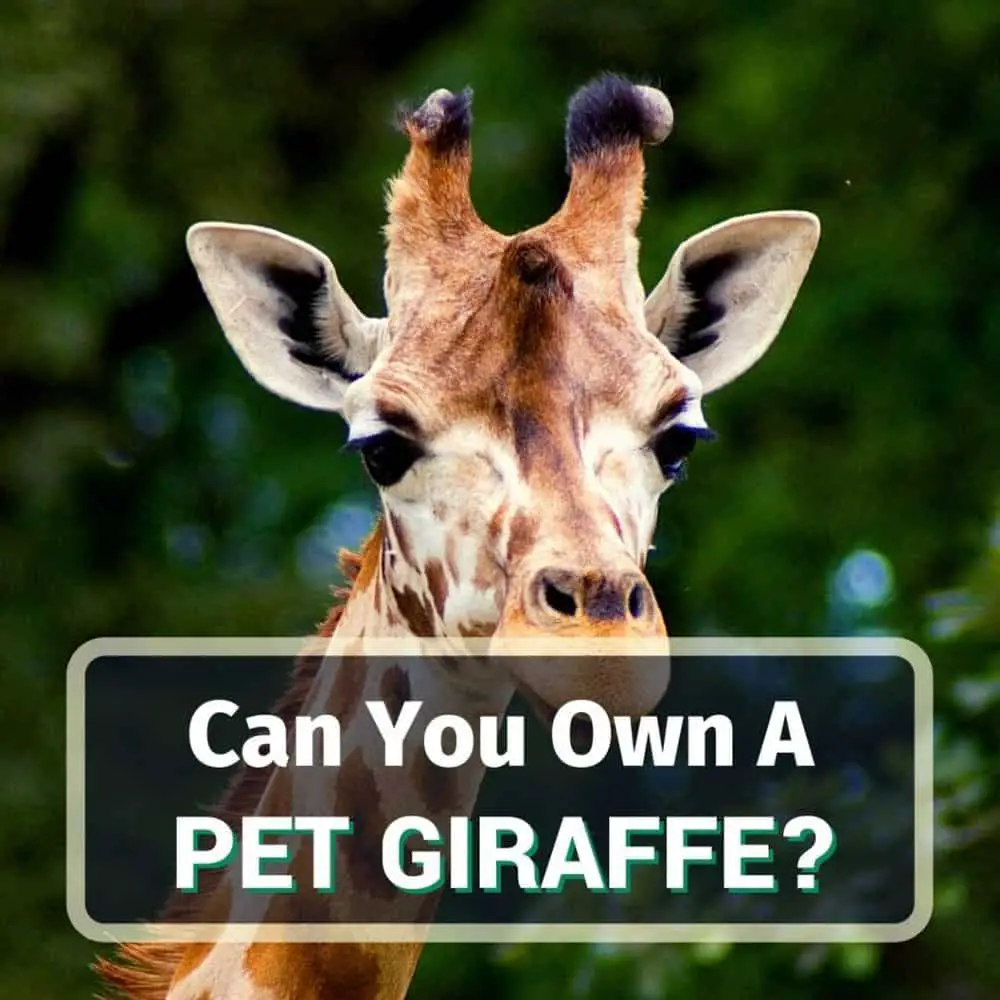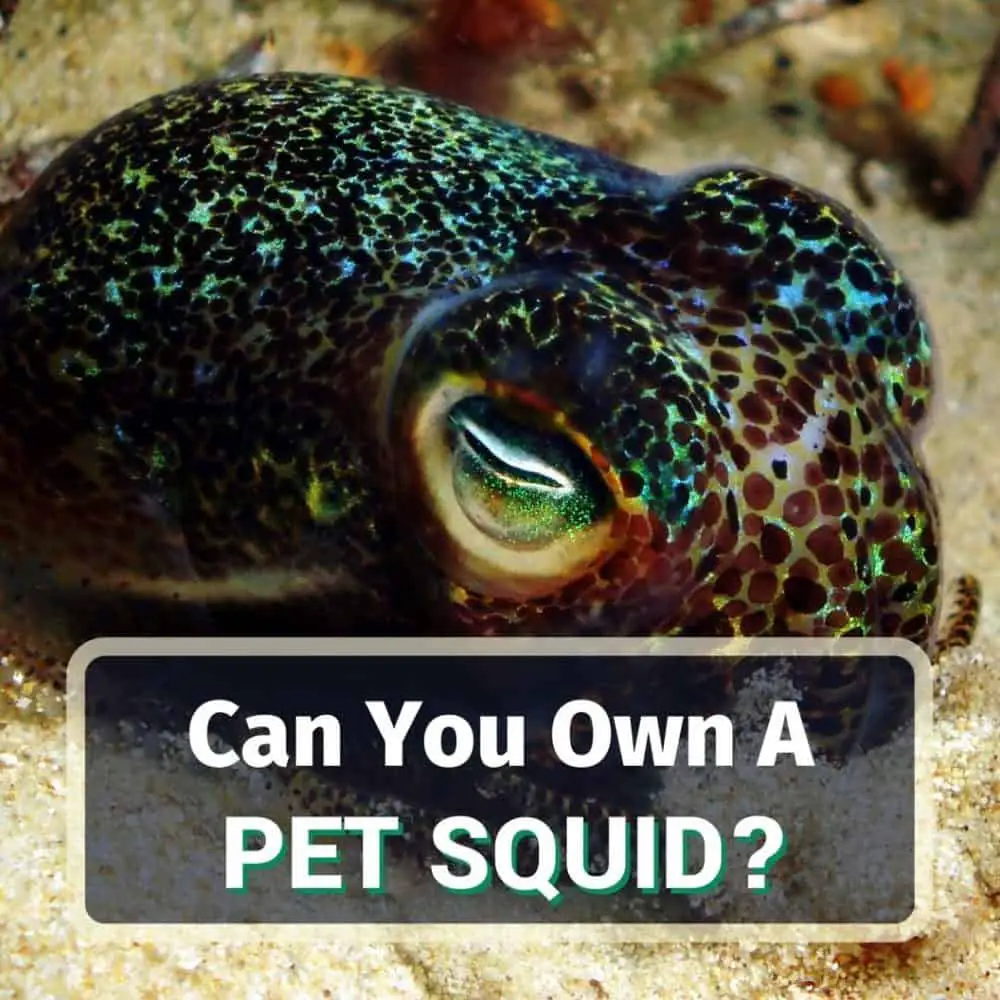Can you have a lion as a pet? Most likely not. In most states, these big cats are prohibited and even if not lion ownership might not be a good idea. In this article, you learn about legalities in different states and what it would be like to own a lion.
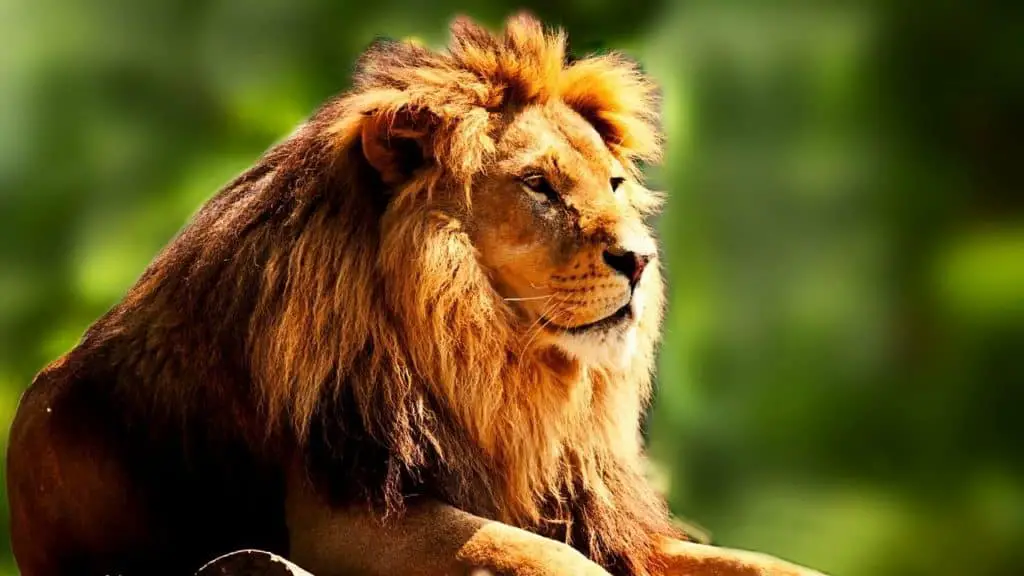
Many people think these wild cats can easily be tamed. The thought of having a pet cat that likes to cuddle but which is also able to protect its owner is tempting. As you can imagine reality is different, especially when we talk about lions.
Can You Have a Lion as a Pet?
To make it simple, we have a list of where you can own a pet lion legally and any provisions associated with the state.
States that Allow Pet Lions without Permits
- Alabama
- Nevada
- North Carolina
- Wisconsin
States that Allow Pet Lions with Permits
- Delaware
- Idaho
- Indiana
- Maine
- Mississippi
- Missouri
- Montana
- Oklahoma
- Pennsylvania
- North Dakota
- Rhode Island
- South Dakota
- Texas
States with Detailed Regulations on Big Cats Owned
- Arkansas
- Florida
- Tennessee
- Virginia
- West Virginia
Is It Legal to Own a Lion?

There are no federal regulations on lions in the United States, but rather, each state has its own allowances and restrictions.
Some areas of the United States have no preset regulations, while others allow it with or without permits, and yet, there are locations where owning a pet lion is illegal.
The Captive Wildlife Safety Act outlines covers all necessary information regarding lions, including:
- Housing
- Transportation
- Importing and Exporting
- Purchasing and Selling
- Breeding
Let’s take a look at where the distinction lies within the United States.
- 35 states prohibit keeping big cats as pets but do have exceptions with various requirements and enforcement laws
- 21 states ban all exotic pets classified as dangerous while allowing certain species or require valid permits
- 6 states do not regulate the possession of keeping big cats as pets
- 4 states have no legislation at all regarding big cats for domestic purposes
For residents in the United States, where big cats, like lions, are permitted, you may also wonder if the cost and work will be worth it in the end.
Why Lions Don’t Make Good Pets
Lions are majestic and beautiful creatures. But, although they are often considered big cats, does that make them suitable for a pet? Some people may reason that if you buy a lion cub and raise it as a domesticated animal, it will be no different than having a house cat, besides its large size, of course.
Does that give individuals the freedom to buy and sell lions and other exotic cats like panthers as pets if that is the case? Many people may not consider the extensive elements that a pet like this would require.
1. Lions are not domesticated
Raising a young cub in captivity has nothing to do with domestication. Breeders would need several generations of selective breeding to produce what we call a domesticated pet.
While lions can indeed be tamed, the wild animal still exists and can easily take over when instincts kick in.
That being said, lions are dangerous predators and they will remain exactly that. No matter what you do or how you train them. If they suddenly feel threatened nobody is safe.
2. Lions can get old
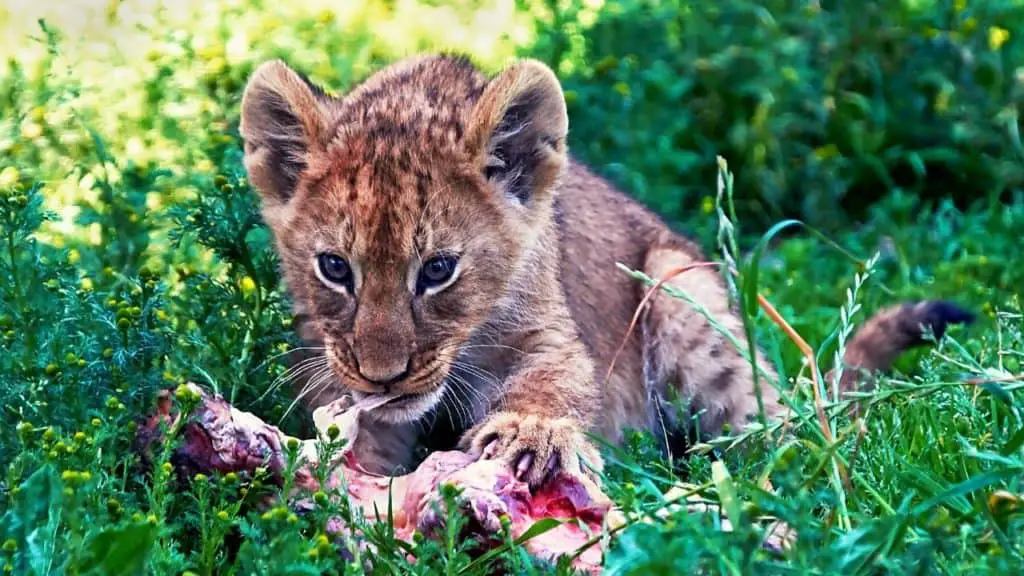
A lion in captivity can live anywhere from 15 to 20 years, depending on its health and quality of life. This timeline is a significant commitment for many pet owners. Although this can be a long duration, big cats in captivity can have a multitude of problems that require regular veterinarian care.
3. Health
Regular veterinarian visits can help keep your pet lion healthy, but exotic vets are not abundant throughout the United States. So before you decide to find a lion for sale, be sure to see if you have the means to provide proper veterinarian care during its lifetime.
4. Space
These large cats need ample space to move around and exercise, which many U.S. residents cannot provide. They vary in size between 270 to 570 pounds, depending on age and sex, making space a priority for a healthy lifestyle.
Lions are social animals and prefer to be with others of their species. Unfortunately, this factor may bring you to wanting more than one pet lion, increasing the amount of space you will need to house them properly.
Enclosures for sleeping indoors, secure fencing, and outdoor run space are critical aspects of owning a lion. However, ensuring that the lion is protected can be costly, so no chance of escape will pose a threat to the public.
5. Diet
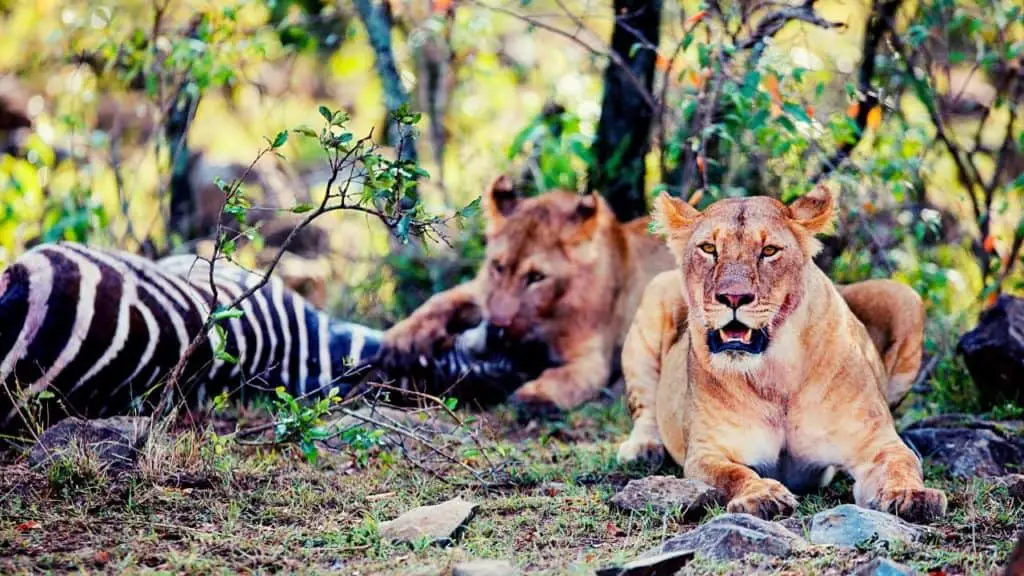
Another consideration is their diet, which will vary significantly from a traditional house cat. Although lions are adaptive in their protein sources, they will typically eat anywhere from 11 to 16 pounds or more of meat each day.
This volume is not your standard ground beef either, but primarily zebra, buffalo, and wildebeest. Feeding a lion strictly buffalo meat will cost you approximately $4.80 per pound or more, depending on your location, making it cost upwards of $76.80 per day to feed your pet lion.
Naturally, an exotic animal in captivity will also require specialized dietary supplements, such as vitamins, to ensure a healthy life. All of these additional elements can add up quickly in the monthly budget of owning a pet lion.
6. Permits and Licensing
There are considerable permit and licensing requirements for owners of big cats, including lions, depending on the location. You can spend thousands of dollars to ensure that your pet lion is registered legally in your state.
How to Get a Pet Lion
Choosing to own a pet lion is one you should not take lightly.
Even if you live in an area of the United States where they allow pet lions or do not regulate the purchase of these big cats, it is critical to examine if it would be a good choice for you and the animal in the end.
You can find lions for sale through many private breeders and at exotic pet auctions. While it can be easy to buy a lion, the price can fall anywhere from $1,500 or more, depending on the age and breed.

